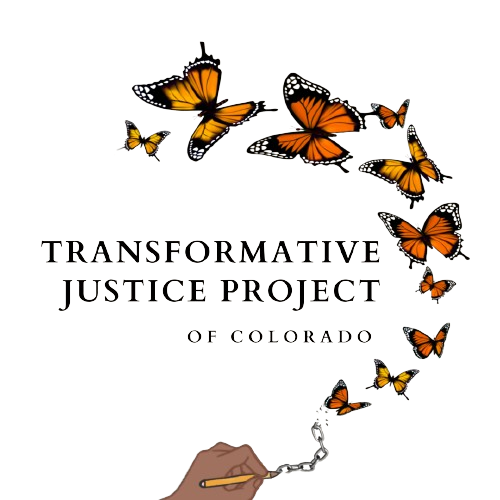2014 LEGISLATIVE SESSION
2014 Legislative Session
CJDC Actively Supported in 2014:
House Bill 1023, Social Workers on Juvenile Cases.
Sponsors: Representative Lee & Senator Ulibarri. This bill permits the public defender’s office to hire social workers in juvenile delinquency cases and provides funding for the new positions.
Status: signed by Governor Hickenlooper on May 14, 2014, became effective July 1, 2014.
House Bill 1032, Defense Counsel for Juvenile Offenders.
Sponsors: Representative Kagan & Senator Guzman. This bill helps ensure early access to defense counsel for children at detention hearings and first appearances, sets parameters for when a youth can waive the right to counsel, and provides more information on the juvenile summons. Click here for fact sheet on HB 1032.
Status: signed by Governor Hickenlooper on May 21, 2014, became effective November 1, 2014.
Sponsors: Senator Guzman & Representative Kagan. This Resolution asked the Colorado Supreme Court to review juvenile court rules and forms, and review Chief Justice Directive 04-04 pertaining to the appointment of counsel. Signed by Speaker of the House on May 19, 2014; signed by the President of the Senate on May 21, 2014. These bills came out of the Interim Committee to Study Juvenile Defense.
Bills CJDC Monitored in 2014:
Senate Bill 064, Restricting Isolation for Seriously Mentally Ill Inmates.
Sponsors: Senator Ulibarri & Representative Salazar. This bill requires the Department of Corrections to review the status of all prisoners in long-term isolation, and move mentally ill prisoners to a mental health step-down program or prison hospital.
Status: signed by Governor Hickenlooper on May 7, 2014.
House Bill 1061, Eliminate Prison for Inability to Pay Fines
Sponsors: Senator Guzman and Representative Salazar. This bill eliminates prison for inability to pay fines in criminal cases, creates a framework for convicted persons to set up payment plans, and creates additional due process for notifying the court of inability to pay before a person can be held in contempt for failure to pay fines.
Status: signed by Governor Hickenlooper on May 9, 2014
Senate Bill 88. Suicide Prevention Commission.
Sponsors: Senate Newell & Representative Kraft-Tharp. This bill would create a suicide prevention commission to develop recommendations for suicide prevention in Colorado.
Status: signed by Governor Hickenlooper May 29, 2014.
Senate Bill 129, Concerning Marijuana Provisions.
Sponsors: Senator Steadman & Representative May. This bill adds consumption and possession of marijuana by persons under 21 years of age to the statute pertaining to possession of alcohol by a minor, and sets penalties for the first, second, and third violations.
Status: signed by Governor Hickenlooper on June 6, 2014.
Senate Bill 193, Location Information after US v. Jones.
Sponsors: Senators Carroll & Lundberg, and Representative Singer. This bill codifies the U.S. Supreme Court decision U.S. v. Jones, which prohibits law enforcement from using location tracking on mobile devices (a search under Jones) without a warrant, with certain exceptions.
Status: signed by Governor Hickenlooper on June 6, 2016.
House Bill 1035, Restitution on Deferred Judgements.
Sponsors: Representative Gardner & Senator Johnston. This bill ensures that restitution ordered in a deferred judgment can still be collected after the deferred judgment has been completed.
Status: signed by Governor Hickenlooper on March 7, 2014.
House Bill 1025, Juvenile Competency.
Sponsors: Representative Rosenthal & Senator Newall. This bill would have redefined the juvenile definition of competency to proceed in juvenile delinquency cases.
Status: this bill was postponed indefinitely by the House Judiciary Committee on January 14, 2014.
House Bill 1131, Cyber-bullying.
Sponsor: Representative Fields & Senator Newell. This bill would add to the misdemeanor crime of harassment the use of a computer device that inflicts serious emotional stress on a minor or places the minor in reasonable fear of death or injury.
Status: this bill was postponed indefinitely by the Senate Judiciary Committee on April 9, 2014
House Bill 1144, District Attorney Training & Compensation.
Sponsor: Representative Gardner. This bill provides a state appropriation for funds for district attorney training.
Status: signed by Governor Hickenlooper May 15, 2014.
House Bill 1148, Concerning the Victim’s Rights Act.
Sponsors: Representative Fields & Senator Jahn. This bill amend the Victim’s Rights Act to provide notification to victims and define critical stages of the case under the act. This is significant because victims will have an opportunity to weigh in at critical stages of the case, including sentencing.
Status: signed by Governor Hickenlooper April 4, 2014
House Bill 1273, Human Trafficking.
Sponsors: Representatives McCann & Wright and Senators Newell & Schwartz. This bill changes legal definitions regarding human trafficking offenses, and creates a Human Trafficking Council to develop services for victims of human trafficking and help prevent and prosecute human trafficking.
Status: Signed by Governor Hickenlooper May 29, 2014.
House Bill 1157, Policies Allowing Concealed Carry in Public Schools.
Sponsors: Representative Humphrey and Senator Renfroe. This bill would have authorized a school district board of education and the governing board of a charter school to adopt a written policy to allow an employee of the school district or charter school to carry a concealed handgun on school grounds if the person holds a valid permit to carry a concealed handgun.
Status: This bill was postponed indefinitely by the House Judiciary Committee on February 13, 2014.
CJDC opposes legislation to put more guns in schools. Research shows that, rather than creating safety, such measures produce alienation and mistrust among students, which can disrupt the learning environment. Persons carrying a gun are not necessarily trained on how to work with young people, and are not prepared to de-escalate, resolve conflict, or respond in a developmentally appropriate manner. Alternatively, CJDC supports policies that reduce the presence of both guns and police in schools, instead redirecting resources to catch early indicators of mental health needs, identify root causes of violence, and promote communication between students, parents, and staff.
